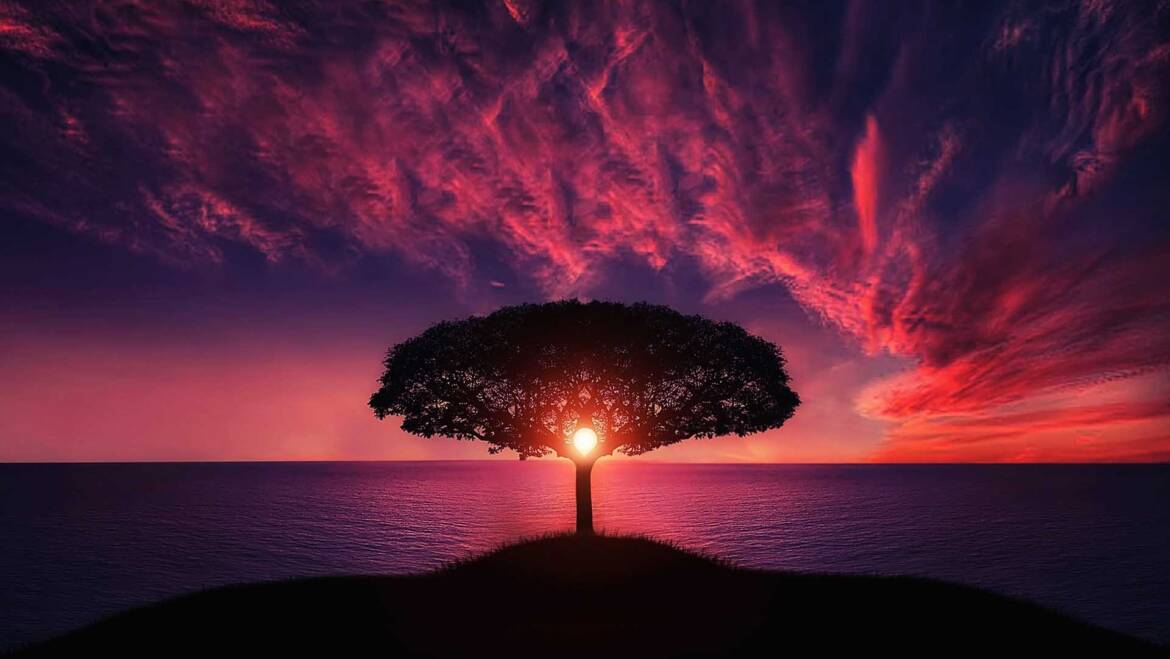Exclusive extract from Horizons of Hope: Unpublished Fragments of Love by Daniel O’Leary
As Christians we try to live out our lives with Love and Mercy. In a weeping world we put love where there was no love and thus continue the human Incarnation of divine love. Life itself, all that it brings, all that we experience, every sensation of the senses is God’s way of saying, ‘I love you; I gaze at you with mercy’. There is a divinity that lies at the heart of every single thing we do, think and say.
To accomplish this mission of Love we need to actually become this Love, to be a sacrament of God’s mercy for others. But is this really true? Is Love the sustaining energy of everything? In a breath-taking theological sentence from his encyclical Laudato Si’, Pope Francis reveals this abiding core of his incarnational faith. ‘It is my humble opinion,’ he writes, ‘that the divine and the human meet in the slightest detail in the seamless garment of God’s creation, in the least speck of dust of our planet’. Only the Christian can begin to understand, even a little, that creation itself was the initial intimation of a future, more radical incarnation, the first step in the long journey of a Love that would evolve into its perfect presence in a wounded humanity.
For that reason, our faith teaches that Incarnation reveals the divine and loving energy in every breath and heartbeat of all that lives, of everything that struggles and fails, of the sublime attraction that drives and draws us to an infinite horizon. It underpins, envelops and sustains our every act of courage in fear, of hope in desperation. It is the completion of creation, the heart of our humanity. Without its power, potency and presence, our lives as Christian human beings would have no real meaning. Incarnation is the verve and vivacity of human and cosmic unfolding, the love-story of life, the sparkle and dynamism of the Christian faith.
Christianity stands alone in its enduring certainty that all phases of evolution, and all the experiences of humanity reveal the divine artistry; and that only God’s creative love is at the core of everything from the initial, mysterious Big Bang, throughout all of our complex history, to the ultimate completion in the cosmic Christ. It is difficult to give oneself completely to this utterly astonishing truth without a lasting transformation of our minds, hearts and souls. Even our bodies pulse with renewed recognition, as does creation itself. When this transformation happens to us our first task is not to start preaching, teaching and converting but to simply be present in such a way that others will be moved by what Blessed John Henry Newman calls the ‘catching influence’ of the love we have become.
We need to start again with a ‘beginner’s mind’, with excitement and anticipation to unwrap the hidden gift we have unknowingly neglected for so long. It is the grace of seeing. ‘The whole of life,’ wrote Pierre Teilhard de Chardin, ‘lies in the verb “seeing”.’ To hearts and senses attuned, the symphony of Incarnation which first accompanied the dance of Creation, continues to resound today through all that exists. Knowingly or not, today’s artists are the priests and priestesses of Incarnation, repeatedly consecrating the world by their holy work, reminding us, even in the darkest days of bombing missions and human self-destruction, of the divine love and meaning, the mercy and beauty that still shimmers even in loveless places.
Theologian Karl Rahner, for instance, reflects on what lies beneath our ordinary conversations. ‘In every word,’ he writes, ‘the gracious incarnation of God’s own abiding Word takes place, and all true hearers of any word are really listening to the inmost depths of every word . . . If one is to grow ever more profoundly Christian, one must never cease to practice listening for this incarnational possibility in each human word.’
Renowned composer Stephen Hough said, ‘One of the things that I treasure about Catholicism is that it isn’t a way of looking at religion as something up in the sky, something that we have to reach for, but it is actually in tangible things. It is having tea with someone, or bread and wine with someone, or sharing music with someone.’
Theologian James Mackey writes that the life which, in the light of Incarnation is now being called God’s real presence, is precisely the life of everyone’s every-day experience on this good earth. ‘It is people’s working and eating, walking in the fields or on the seashore, playing for their team or dancing in their clubs, sleeping with their spouses or talking with their friends, suffering the slings and arrows of outrageous fortune or holding out a helping hand to others . . . and getting up for Mass on Sundays.’ All of that is Incarnation.
Every Sunday Eucharist points to the real presence of the lived Incarnation on the scarred face of our turning, churning world. It reminds people to believe there is light in the darkest places, to remember with mercy the homeless millions whose hearts, eyes and stomachs are empty every day. The Mass guarantees what Incarnation revealed – that every real relationship on earth is sacred, that no bitter tear or heartfelt wish is ever wasted, that hope hides in every desperation, that every breath is God’s kiss of life, that no sin is ever left unredeemed, that nothing is really lost, that all, in the end, is harvest.
Horizons of Hope: Unpublished Fragments of Love by Daniel O’Leary is available here.


